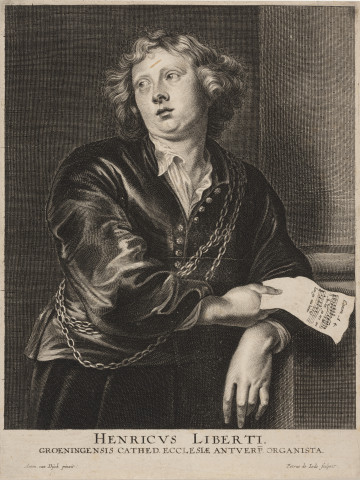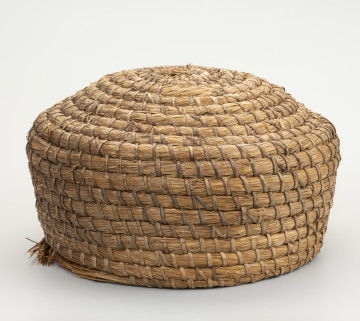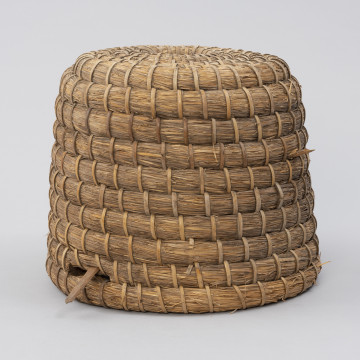
Portrait
circa 1632
National Museum in Szczecin
Part of the collection: Painting and drawing
The drawing made by Teodor Axentowicz (signed and dated) depicts Roman Potocki (1851–1915) on his deathbed. Roman Potocki, Third Lord Ordynat of Łańcut, together with his second wife Elżbieta, née Radziwiłł, raised the status of the residence by initiating a grand reconstruction, to which the castle owes its present appearance. The reconstruction covered all the floors of the castle and the park, and a number of technical innovations were introduced, such as plumbing (water was brought from nearby Handzlówka), electric lights, and fan-type heating, a prototype of the present-day central heating. The bathrooms in the castle come from this period, along with original bathtubs and fittings made by the Gramlick company based in Oxford (there are plaques with the company’s logo on the bathtubs and taps). The course of this reconstruction deserves additional recognition, since – which was rare for those times – the older rooms from the times of the Lubomirski family (the previous owners of the castle) were carefully preserved without changing their character. Thanks to this, we can admire the apartment suite that belonged to Princess Lubomirska. Teodor Axentowicz, a renowned Polish painter and illustrator (1858–1938), a portrait artist, professor of the School of Fine Arts in Krakow (currently the Academy of Fine Arts) often made commissioned works, and we are dealing with one such commission here. The fashion for commissioning posthumous drawings or photographs comes from coffin portraits, popular among Polish nobility in the 17th and 18th centuries. These were paintings painted on sheet metal, mainly in oil. They had a shape adapted to the side of the coffin, where they were mounted on the side of the head of the deceased, so that in this symbolic way, they could participate in their own funeral. They were very realistic portraits, without any embellishments, but in rich costume (so-called pompa funebris). With time, the artistic value of these images declined, until they were finally replaced by drawings and photographs.
Author / creator
Dimensions
height: 48 cm, width: 62 cm
Object type
Painting and drawing
Technique
drawn
Material
paper
Origin / acquisition method
decyzja administracyjna
Creation time / dating
Creation / finding place
Owner
Castle Museum in Łańcut
Identification number
Location / status

circa 1632
National Museum in Szczecin

1965
National Museum in Szczecin

1890 — 1910
National Museum in Szczecin
DISCOVER this TOPIC
Museum of King Jan III's Palace at Wilanów
DISCOVER this PATH
Educational path